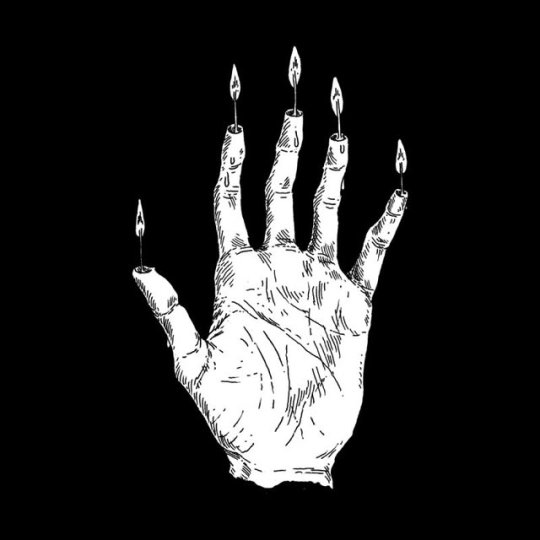Author Archive
The Boiled Leather Audio Moment #11!
October 30, 2017Moment 11 | Chekhov’s Wildfire
Welcome to an explosive edition of our subscriber-only mini-podcast! This time around BLAM is truly living up to its onomatopoeic acronym with a question from Matthew, a subscriber at the $5 level, who writes: “What do you think of the Chekhov’s Wildfire theory; that King’s Landing will be destroyed by Dany, Cersei, or someone else?” It’s a cool question, because it lets Stefan & Sean answer in ways that are fundamentally the same but with very different details. Pledge $2 a month, tune in, and find out what they are! And don’t forget: If you want us to answer your question on-air, pledge $5 a month to go in the queue, or $10 a month to go to the front of the line!
BLACK FRIDAY II: HALLOWEEN MIX 2017
October 27, 2017“Mr. Robot” thoughts, Season Three, Episode Three: “eps3.2_1egacy.so”
October 27, 2017Aside from the unusual time-jumping, it’s one of the most narratively straightforward episodes of Mr. Robot since Season One. It just gets you from point A to point B, is all, even if it had to backtrack a bit to do so. It satisfies a narrative itch, nothing more.
Primarily, it’s a showcase for Martin Wallström as Tyrell Wellick. The character and performance alike have their diehard partisans and their dismissive detractors. For my money, when you add Tyrell’s mental, moral, and professional collapse to his fixation on doing right by both his family and the man of his dreams, you get a whole different sort of sociopath from either the Patrick Bateman one-percenter murderers or the Phillip Price/Whiterose puppetmasters. Wallström lacks the golfball-sized convex eyes of his castmates Rami Malek, Portia Doubleday, and Carly Chaikin, but man those things are blue, and the person behind them seems to be in almost agonizing psychological pain at all times.
That’s the key to Tyrell Wellick, really. Despite being one of the ostensible archvillains of the piece, he’s more emotionally open and expressive than any of the fsociety “good guys”—Elliot, Angela, Darlene, Cisco, even Mr. Robot himself. He’s the only one who embodies the sense of dislocation and terror on a permanent basis that characters like Elliot and Darlene can only access during acute breakdowns. In a weird way, he’s the heart of the show, and that heart is warped as hell. In that light, the standard-issue storytelling of the episode can be forgiven, even if you suspect it’s part of a slight creative retrenchment in the face of the vituperative reaction to the show’s fearless fuck-you of a second season. A character this peculiar can take all the time to fill in the blanks he needs.
I reviewed this week’s backtracking episode of Mr. Robot for Decider.
31 Days of October T-Shirts, Day 25: Hand of Glory
October 26, 2017“Mindhunter” thoughts, Season One, Episode Ten
October 25, 2017Holden’s meeting with Ed Kemper, who attempts suicide and names Ford as his medical proxy in order to force another meeting, is the first time any of his conversations with murderers has felt like something out of a serial-killer-as-supervillain movie. It’s not actor Cameron Britton’s fault—he plays Kemper with the same unnervingly conversational affect as ever. Rather, it’s the mechanics of the meeting: revealing the stitches from his suicide attempt like he’s a breath away from one of the Joker’s “Do you wanna know how I got these scars?” speeches, leaping from his hospital bed with cat-like reflexes, threatening to murder Holden and make him akin to the “spirit wives” he gained when he killed his previous victims, then reversing course and hugging Holden, thanking him for his honesty. When Holden says he doesn’t know why he came, it turns Kemper into a criminal mastermind, luring the FBI’s best and brightest into a potential deathtrap just to show he could. I’m sure it’s supposed to say something about Holden’s increasingly agitated state of mind, but it just makes him look dumb and indecisive, two things he’s never been.
The follow-up is even more of a misfire. The instant Holden hits the door out of Kemper’s hospital room, Led Zeppelin’s “In the Light” kicks in. The song’s creepy-cool John Paul Jones synthesizer opening had been used to great effect during Holden’s flight to California, but this time the track is fast-forwarded to Jimmy Page’s triumphant, upward-climbing riff. The transition is so abrupt, the musical sentiment so poorly matched to the moment, that I actually laughed out loud—yet that’s not even the half of it. Holden staggers down the hallway and collapses, in the grips of a full-fledged panic attack so severe he thinks he’s dying. As the hospital staff frantically tries to aid him, he hears the voices of other characters in his head, reliving times they called him on his bullshit and warned him about his behavior: Bill, Shepard, Wendy, Kemper, even Principal Wade. “Wait,” you may be thinking, “you mean like the ‘I made my family disappear’ scene in Home Alone?” Yes, exactly like the “I made my family disappear” scene in Home Alone. Add a few floating-head visions and a “You’re what the French call les incompétents” and not even David Fincher and Chris Columbus could tell the difference. The device is so hackneyed it comes across like a joke from a children’s comedy.
Worse, it’s unnecessary. Did we really need to hear people telling Holden he fucked up for us to understand, while watching him have a panic attack brought on by a serial killer who took advantage of him and could easily have murdered him, that Holden fucked up? I can’t remember the last time I saw a season finale swing and miss this hard.
I reviewed the season finale of Mindhunter, which I did not care for, for the A.V. Club.
30 Movies to Watch If You Like ‘Stranger Things’ [or Don’t!]
October 25, 2017The Last Unicorn (1982)
One of the most beautiful, melancholy, magical, and genuinely adult animated features in American film history. This adaptation of fantasist Peter S. Beagle’s novel comes to us courtesy of Rankin/Bass Productions and Japanese animation studio Topcraft — the former responsible for the stop-motion Christmas classics Rudolph the Red-Nosed Reindeer and Santa Claus Is Comin’ to Town, the latter eventually evolving into Hayao Miyazaki’s Studio Ghibli. Together, they produced the J.R.R. Tolkien cartoons The Hobbit and The Return of the King, plus this gut-punch of a film, about a unicorn who becomes trapped in the body of a young human woman. With a body-horror subtext worthy of Cronenberg and a ridiculously impressive voice cast (Mia Farrow, Jeff Bridges, Christopher Lee, Angela Lansbury, and Alan Arkin), it’s like a cross between Stranger Things and a story from the Dungeons & Dragons game its characters play.
Paperhouse (1988)
Directed by Bernard Rose — who would later adapt Hellraiser writer-director Clive Barker’s short story “The Forbidden” into the acclaimed urban-horror film Candyman — this harrowing supernatural/surrealist film centers on an 11-year-old girl who discovers her dreams and drawings are coming to life and consuming her reality. She’s got to figure out how to take charge and reassert control. Paperhouse is what I think of when Stranger Things is at its best.
Recast the relationship between Eleven and Mike Wheeler as a tragedy instead of a heroic fantasy, and you might wind up with this morbid proto-romance between a bullied kid and the young vampire who simultaneously befriends, protects, and uses him. There’s stuff going on here about abuse and loneliness, for characters of all ages, that digs way deeper than anything Stranger Things has done; if Netflix’s series is a 101 entry-level course, this is graduate work.
31 October T-Shirts by Julia Gfrörer, Day 24: Catherine Wheel
October 25, 201731 October T-Shirts by Julia Gfrörer, Day 23: Serpent Rampant
October 25, 2017“Mindhunter” thoughts, Season One, Episode Nine
October 23, 2017For the Behavioral Science Unit, it was the best of times, it was the worst of times. The penultimate episode of Mindhunter Season 1 shows the team operating at the peak of their powers, working in in tandem to create the term for which they’ll go down in history: “serial killer.” It also depicts faultlines forming that could jeopardize the whole project (if this weren’t verifiable historical fiction, anyway). If you’ve been following along, it’s not hard to understand why the former aspect of “Episode 9” works much effectively than the latter. Mindhunter is always better when its characters are all on the same side.
The “serial killer” scene is the most satisfying example of this phenomenon yet—a conference-room scene between Holden Ford, Greg Smith, Bill Tench, and Wendy Carr that feels like watching a tight jazz quartet trade eights. Wendy tries to come up with a term for murderers who carefully prepare for their kills versus those who go on a spontaneous rampage. Smith asks if that isn’t simply organized versus disorganized killers. Wendy says, no, that refers to the process during the crime, not the pattern behind it. Killers like Charles Whitman or Richard Speck, she says, take random victims during rapid-fire rampages, so their existing term of art “sequence killer” doesn’t work. “Whitman was on a spree,” Holden says, with Wendy and Greg backing him up. Bill agrees too, but then expresses doubt about the “sequence killer” label for a killer like Ed Kemper: “It feels too…cadenced,” he explains, starting to actually sound like a musician. Debbie thinks he might be on to something. “It should feel like a long story,” Holden follows up, “continually updated.” “A series of killings,” Bill replies. “Serial?” Holden murmurs. “Serial murderer?” Greg suggests. “Serial killer?” Bill says, refining the concept, and you can see on everyone’s face that he’s hit the mark. “That’s better,” Wendy says, impressed. “Let’s see if it sticks.” Yeah, let’s see!
The Boiled Leather Audio Music
October 23, 2017Sean, as a patreon subscriber to the Boiled Leather Audio Moment I was wondering if you could post a track listing to the songs you use in your intro/outro for the BLAM eps, some of them I recognize/know but others not so much and would like to know. You have a good taste in music, unless it’s Stefan picking tracks in which case he has good taste! Thanks Sean (or Stefan)
31 October T-Shirts by Julia Gfrörer, Day 22: Crumbling Castle
October 23, 201731 October T-Shirts by Julia Gfrörer, Day 21: Fleabag
October 23, 2017“Mindhunter” thoughts, Season One, Episode Eight
October 23, 2017For Mindhunter to succeed, its investigations have to be successful too. That doesn’t mean Holden, Bill, and Wendy need to solve every case or understand every unique pathology they encounter. It simply means that the temperament and technique that help them produce their best work — the blend of curiosity, cooperation, openness, and uncertainty I spelled out last time, during an episode where those traits were largely absent — help the show produce its best work as well. Given what came before, “Episode 8” makes the biggest leap in that direction since the series began, in what for my money is its most riveting and revealing interview with a serial killer to date.
“The Deuce” thoughts, Season One, Episode Nine: “Au Reservoir”
October 23, 2017Let’s get this out of the way: What we have just witnessed was, hands down, the best episode of The Deuce yet. By a lot. Titled “Au Reservoir,” it’s funny, scary, sad, sexy and entertaining as hell from start to finish. How did this so-so show get so damned good so suddenly?
The answers may lie behind the scenes. This episode was directed by co-star James Franco, who previously helmed one of the series’ better installments. Judging from his two turns in the driver’s seat, he’s got a knack for finding the warmth and humor in the characters and their plights; you can see the kind of actor he is reflected in the work he gets out of others.
Screenwriter Megan Abbott likely deserves the lion’s share of the credit. Along with George Pelecanos, Richard Price and Lisa Lutz, she’s part of the murderers’ row of crime novelists who share the show’s scripting duties. But her writing delivers in ways even the best bits of previous episodes never did.
Honestly? Watching shows written by the most acclaimed novelists in the crime genre hasn’t done much for me beyond make me wonder what the hell is going on in the crime genre. I guess pretty much the same thing that goes on in every genre. Patrick Rothfuss is well-reviewed, you know? But Abbott’s work on this episode redeems the field as far as I’m concerned.
“Mindhunter” thoughts, Season One, Episode Seven
October 21, 2017To paraphrase the great Yakov Smirnov, on Mindhunter, case cracks you!
I reviewed episode 7 of Mindhunter, in which the team meets cartoonishly nasty serial killer Jerry Brudos and starts to lose their shit because of it, for the A.V. Club. I get why the show did what it did here—I just don’t enjoy it as much.
31 October T-Shirts by Julia Gfrörer, Day 20: Full Moon
October 20, 2017“Mr. Robot” thoughts, Season Three, Episode Two: “eps3.1_undo.gzh”
October 20, 2017Now, however, Elliot’s mission is reform rather than revolution. In this new worldview, “Evil Corp” is “a necessary evil that just needs to be kept in check.” Get rid of “the corrupt, moronic managers” — “purge Evil Corp of all their shitbags” — and the company will “no longer be evil, because changing the world is never about tearing E Corp down — it’s about making them better.” These could be Obama or Clinton campaign slogans. Meanwhile, of course, CEO Phillip Price is igniting a global currency war with China in order to make himself the supreme ruler of the world’s economy. Elliot’s reformist bromides are the kind of technocratic liberal bullshit we’ve been hearing for the better part of a decade as the entire planet goes to shit and billionaires fund fascist takeovers. The sequence is a savage own of empty centrism, just as Elliot’s dismissal of his previous motives as “dorm-room philosophizing” is a fuck you to critics who levied that charge at the show. Look around you, folks. The dorm-room philosophers were right.
I reviewed this week’s vicious episode of Mr. Robot for Decider.
“Suburra: Blood on Rome” thoughts, Season One, Episode Ten: “Call It Sleep”
October 20, 2017Honestly, it’s a minor miracle that a finale so clearly designed to set up a second season, let alone lead to the feature film for which the whole affair serves as a prequel, is this rich and challenging. But Suburra has been punching above its weight class from the jump. With any luck, this gorgeous, big-hearted, marvelously acted gangster story will find the word-of-mouth audience it deserves. Take a bow, you crazy kids. You’ve earned it.
I reviewed the season finale of Suburra: Blood on Rome for Decider. Man was this thing a hoot!
“Suburra: Blood on Rome” thoughts, Season One, Episode Nine: “Pitch Black”
October 20, 2017“Pitch Black,” the penultimate episode of the show’s first season, cements my already firm belief that this is the best crime show Netflix has done by a mile. When you see the kinds of emotional climaxes Suburra can deliver for its main characters despite the fact that nearly all of them are likeable, even lovable, you have to wonder if it’s working so well because nearly all of them are likeable, even lovable, and not despite it at all.
This runs counter to the approach of nearly every post–Breaking Bad crime thriller on television. The best ones, like Breaking Bad itself, work hard to make their characters empathetic on some level, but they want you to think “christ, what a fucking bastard” as often as possible. The mediocre-to-shitty ones don’t have the depth to do empathy, so you wind up with a lot of miserable assholes grimacing all the time between horrible murders. Aureliano, Spadino, and Lele have all done their fair share of frowning and yelling and crying, but any single one of them has visibly enjoyed themselves on screen — not sociopathically, at the expense of others, but simply delighting in one another’s company — more than the equivalent players on every other Netflix crime saga combined. That gives Suburra a leg up on even its relatively solid sister series, like Ozark or Narcos or even Daredevil. These people have a lust for life, dammit, which gives their life and death struggles an irresistible magnetic charge.
I reviewed episode nine of Suburra: Blood on Rome for Decider. I’m telling you folks, whatever other Netflix show you’re watching, you’ll have a better time watching this one, I promise.
“Mindhunter” thoughts, Season One, Episode Six
October 20, 2017But once again, Mindhunter refrains from the mistake it made in its earliest episodes, where Tench and Ford’s boss was a mouthpiece for outdated and ignorant views—a convenient obstacle to be overcome by the real visionaires. It’s true that the D.A. doesn’t quite grasp the complex interplay of impulses and triggers that shaped Benjy, Frank, and Rose’s respective involvement in the murder and its aftermath. But it’s not that he can’t understand it, or doesn’t want to understand it. Wendy, Holden, and Bill simply haven’t figured out how to express it in a way that will get a guilty verdict out of a jury. When Wendy asks him “How do we translate this so you can use it?”, it’s neither a rhetorical question nor a passive-aggressive dig—she really wants to find a way to make their findings useful outside the laboratory conditions of their office.
And when the D.A. approaches them after allowing Frank to cop a plea, he’s sincere when he tells them why his hands were tied. It’s a utilitarian numbers game—“the lowest cost for the highest quality justice”—and he couldn’t take the risk of confusing a jury and letting justice of any kind slip away. Even when Holden and Bill grumpily reject his offer to take them out for dinner by way of an apology, they still shake his hand when he offers it. There are no hard feelings. How can there be? “What difference does any of this make if we can’t communicate it to the people who matter?” Holden asks Bill before they drive away. “I don’t know,” Bill sighs. Their own uncertainty about the trail they’re blazing makes them more forgiving when others demur from following.
I reviewed episode six of Mindhunter for the A.V. Club. Solid and thoughtful.












